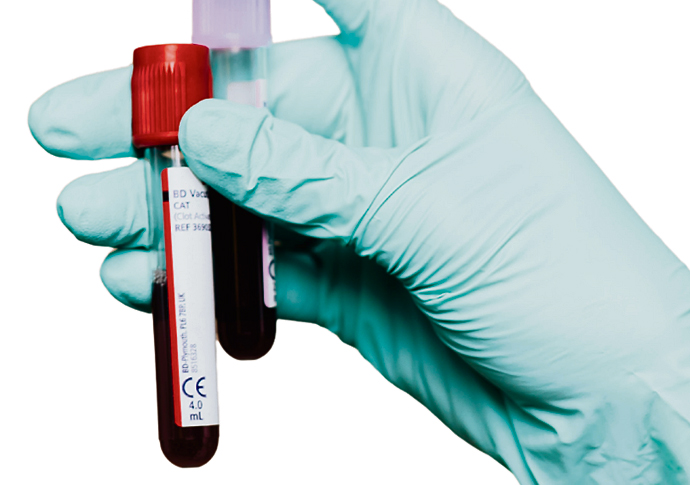Blood test workers in pay walkout
Hospital disruption expected as privatised workforce vote to strike
Friday, 29th August 2025 — By Tom Foot

THE Whittington is among hospitals facing a serious disruption with more than 500 laboratory staff preparing for an unprecedented strike action next week.
The three-day industrial walkout by 570 scientists and technicians follows a bitter NHS privatisation dispute over pay, unmanageable workloads and concerns for patient safety.
The health workers analyse almost all blood, urine and tissue samples taken from Whittington hospital patients, before ensuring the results are returned to clinical teams.
They work for a centralised laboratory run by a joint venture company, Health Services Laboratories (HSL), in a system set-up after pathology services were outsourced from the NHS in 2016.
Unions chiefs say the strike – starting on Wednesday – will cancel operations, halt blood transfusions, disrupt emergency care in A&Es and leave doctors unsure how to progress with treatments for thousands of patients.
HSL staff have told the Tribune they have been forced into a corner by company bosses refusing to meet union demands despite months of negotiations.
The union’s regional officer Mark Boothroyd told the Tribune: “Our members at HSL are standing up for the health service and simply want the same conditions as their colleagues in the NHS. They have had enough of being exploited and underpaid.”
When the new system was set up, hundreds of NHS staff were forced to transfer from NHS hospitals onto the payroll of HSL.
At the time anti-privatisation campaigners forewarned many of the concerns raised by Unite this week and striking staff have spoken to the Tribune about their “regret” over the privatisation, saying they now find themselves having to process hundreds of additional samples per day.

The Whittington
One long-standing worker said: “I had to give up my NHS terms and conditions and ended up much worse than I was before. It has been a massive regret for me.”
The staff member spoke of a wide “pay discrepancy” between the NHS and the private company, the lack of a “grading” system for automatic salary increases, low “chance of progression” and reduced sick pay and annual leave.
“It doesn’t matter to me now because I am not someone who goes sick very often, but you don’t know how things are going to pan out in the future,” they said.
“The trouble is with HSL monopolising the service across north London, is there are very few places for anyone to go to. So you are stuck between a rock and a hard place. But now we are feeling severely underpaid, and severely mistreated.”
Speaking of the impact, they said: “Given the size of HSL and the amount of work they do for the hospitals, often the results we send back are required instantly, the impact is going to be quite dark. We are talking about blood transfusions, patient treatments, A&E work. There will be none of those results and doctors are not going to know how to progress with patients.”
Last Wednesday, 94 per cent of balloted Unite staff at HSL, more than 570, voted for strike action on September 3-5.
HSL’s chairman is Lord Carter, Baron Carter of Coles, a Labour who led a government review into NHS spending in 2006 that recommended outsourcing pathology services from individual hospitals. His office did not respond to request for comment this week.
Under NHS reforms introduced by Tony Blair’s Labour government, independently-run foundation trusts were given powers to team up with commercial companies and bid for NHS contracts.
It led to UCLH and the Royal Free setting up the HSL joint venture along with a private firm, The Doctors Laboratory (TDL), to provide pathology services.
The set up has been praised by some commentators as 49 per cent of profits made by the company are returned to the two hospitals.
But TDL – a subsidiary of Australian health giant Sonic Healthcare – retained control of the operation and the lion’s share of profits.
It is a subsidiary of Australian healthcare giant Sonic Healthcare that pays out tens of millions to its shareholders each year. The pay of its chief executive, David Byrne, rose by 40 per cent last year, according to recent accounts.
A spokesman for HSL said: “We have been informed of Unite’s decision to call strike action at a number of our London facilities in early September. We have been engaging with recognised trade unions since February and remain ready to meet at any time to resolve matters constructively.
“Our services are fully operational and plans are in place to ensure that we continue to provide safe, high-quality care for patients while supporting our employees. In the event of a strike, we will work with all our employees and customers to keep disruption to a minimum.”